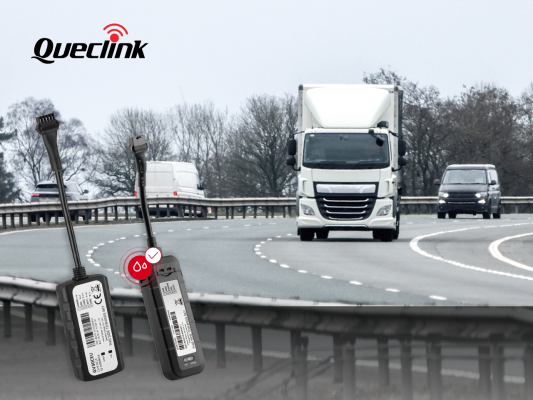For many commercial drivers, owning or accessing a reliable vehicle is essential to keeping business operations on track. Whether you are delivering parcels, transporting clients, or managing mobile services, the vehicle you use is central to your livelihood. However, how you choose to finance that vehicle can have lasting financial consequences.
Personal Contract Purchase (PCP) agreements have become a common way to finance cars across the UK. These deals offer structured payments and flexible options at the end of the contract, which can appear ideal for professionals who need newer vehicles. But recent developments have revealed that not all PCP agreements were explained fairly, giving rise to a significant wave of PCP claims.
This article outlines what commercial drivers should know about PCP finance agreements, how to assess if your contract was fair, and why the intended use of the vehicle is key when it comes to eligibility for a claim.
What Is a PCP Agreement?
A PCP agreement allows drivers to make monthly payments over a fixed period, usually between two and four years. At the end of the term, drivers typically have three options:
- Make a final payment to purchase the vehicle
- Return the vehicle to the finance provider
- Use the vehicle as a trade-in to begin a new agreement
The structure is designed to make car finance more accessible by lowering monthly payments. This can be attractive to anyone who wants access to a newer car without committing to ownership from the outset.
PCP was not created exclusively for personal drivers, but mis-selling claims are only valid when the vehicle was used primarily for personal or domestic purposes. If the car was mainly used for business activities, the agreement is usually not eligible for redress under consumer-focused regulations.
Personal Use vs Business Use: Why It Matters
Although some commercial drivers have entered into PCP agreements, the ability to seek compensation through a mis-selling claim hinges on how the vehicle was used.
- If the car was used primarily for personal or family use, the agreement may qualify for review.
- If the car was used mainly for business or professional driving, such as for deliveries, client transport or fieldwork, the agreement likely falls outside consumer protections.
This distinction is based on the fact that consumer credit regulations are designed to protect individuals, not businesses. Claims for mis-sold PCP agreements rely on these consumer rights and do not usually apply to commercial use.
Red Flags: Was Your PCP Deal Mis-Sold?
Even if your agreement qualifies based on personal use, it is worth reviewing how the finance was presented to you. Many current PCP claims stem from a lack of clarity or failure to disclose key information. You may have reason to question your contract if:
- You were not told that a broker or dealership received a commission for arranging the deal
- You were not shown alternative finance options such as hire purchase or personal loans
- Interest rates or final payments were not explained clearly
- You were rushed into signing the agreement without a chance to review the terms
- You were not made aware of your options at the end of the contract
These issues were especially common between 2007 and 2021, the period under active review for PCP mis-selling across the UK.
Steps to Take: Reviewing Your Agreement
If you believe your PCP deal may have been mis-sold and it was for personal use, you can begin by reviewing your documentation. Here are some practical steps:
- Locate your paperwork including contracts, offer letters, and emails
- Review payment structures especially final balloon payments and interest terms
- Check for commission disclosure or any signs of incentive-based selling
- Assess whether alternatives were offered or if you were presented with only one option
If your paperwork lacks clarity, you might consider using an online PCP claim checker. These tools can help determine if your agreement could be eligible for redress, though they are only relevant for personal-use agreements.
Understanding PCP and Car Finance Claims
If you feel that your PCP agreement was not explained fairly, and your vehicle was used for personal reasons, a mis-selling claim might be an option. The general process includes:
- Initial Review
Examine your original agreement and sales experience to identify any concerns. - Check Eligibility
Use tools such as a PCP claim checker to evaluate your case. - Submit a Complaint
Complaints are typically filed with the lender or dealer who arranged the finance. - Investigation and Response
The finance provider may offer redress if the agreement was not presented in line with consumer protections. - Further Action
If rejected, complaints may be escalated to the Financial Ombudsman for review.
Remember, claims are only valid if the vehicle was mainly for personal use.
Financing a New Vehicle? Here’s What to Ask
If you are considering a new PCP agreement, make sure to ask these important questions before signing:
- Is commission involved, and how does it affect the interest rate?
- What are the exact monthly payments and the final balloon payment?
- What happens at the end of the contract, and what are my options?
- Are there mileage restrictions that could lead to penalties?
- Were other types of finance explained and compared?
Taking time to ask these questions can prevent unpleasant surprises later.
Final Thoughts
PCP agreements can offer flexibility and convenience, but they must be presented with full transparency. For commercial drivers, understanding the distinction between business and personal use is essential. While car finance claims have helped many consumers recover compensation, eligibility rests on whether the vehicle was primarily for personal purposes.
If your vehicle was used for work and the contract was structured for business use, you may not qualify for redress under consumer rules. However, if the vehicle was for personal use and you feel your agreement was not fully explained, you could have grounds to challenge it.
The key is understanding your agreement, reviewing the documentation, and asking questions before signing anything new. A vehicle may power your profession, but a fair finance agreement should support your financial wellbeing just as much.



